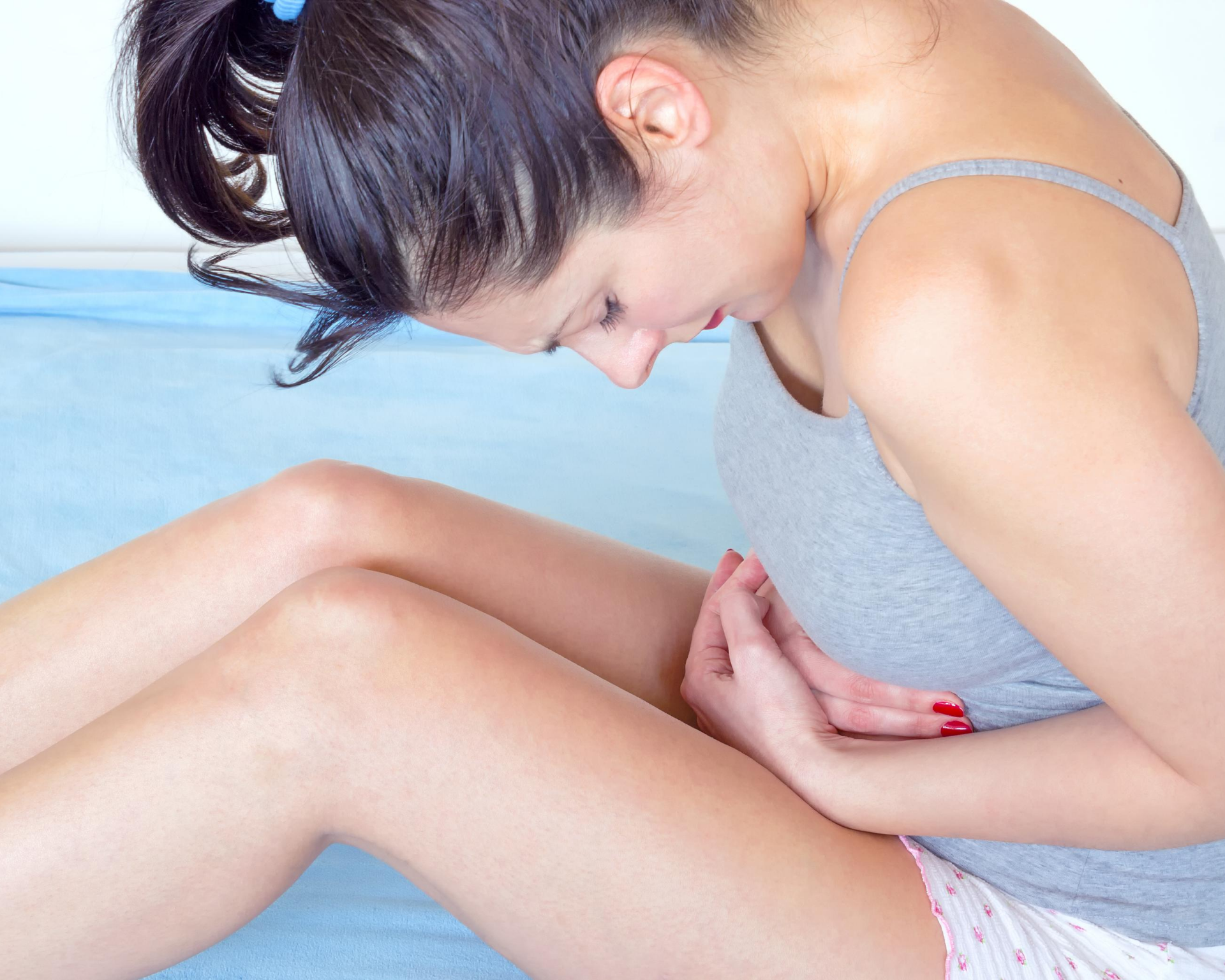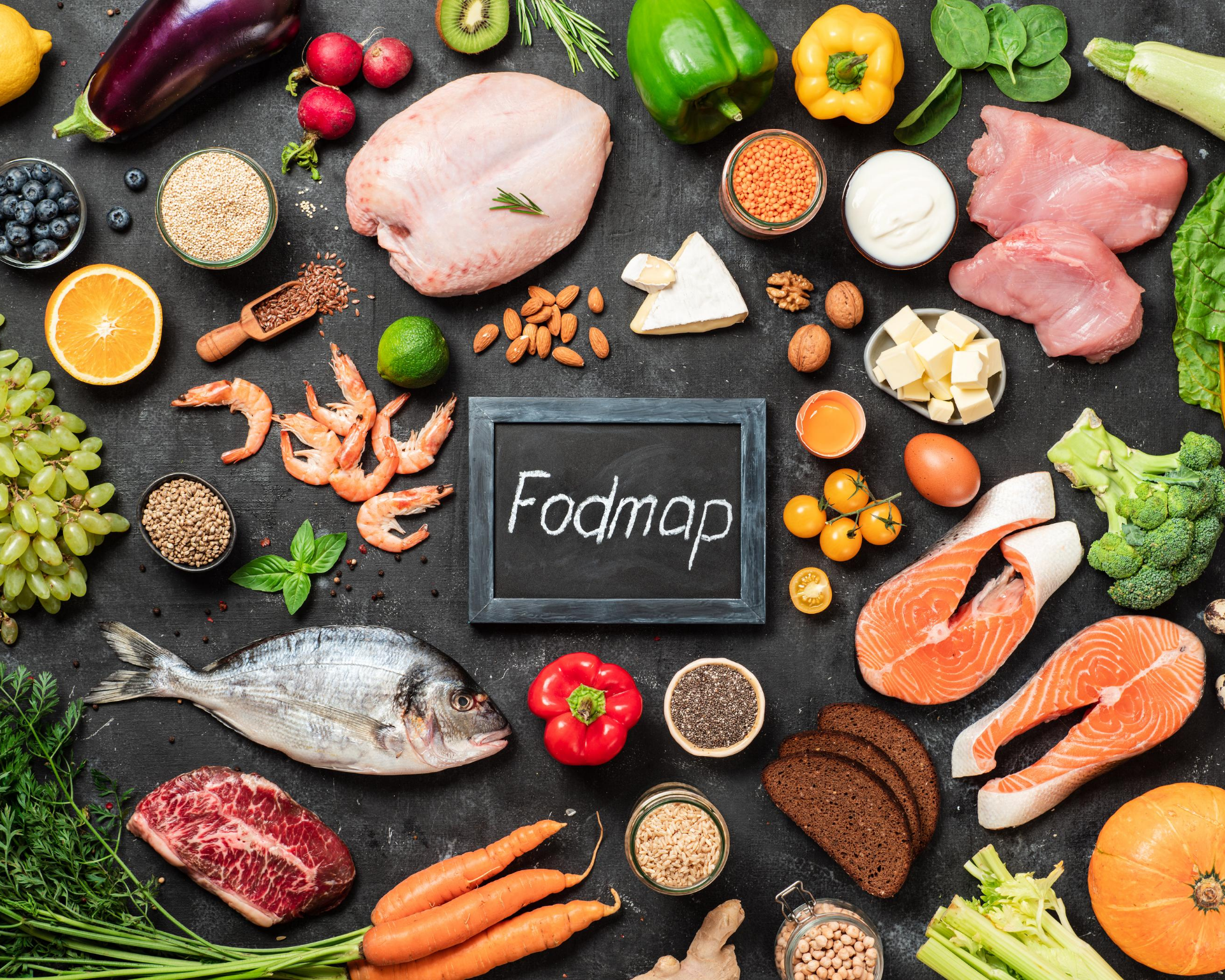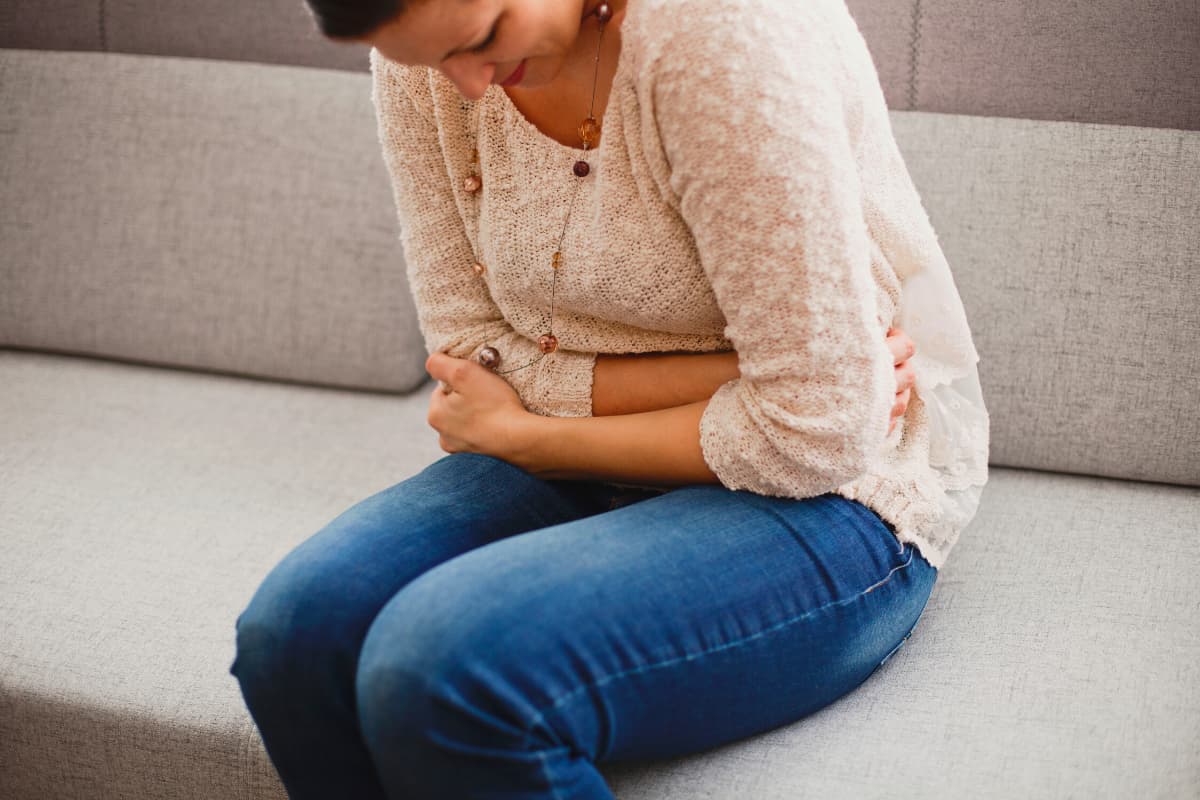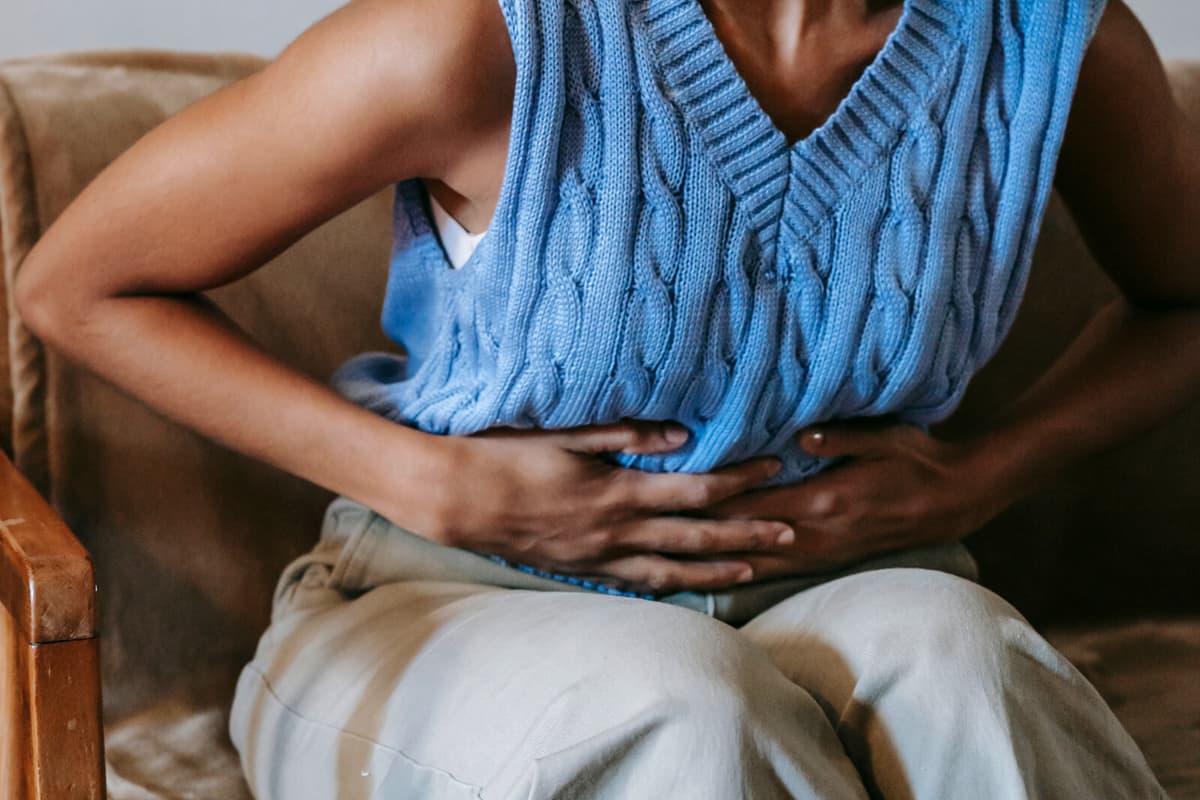Feeling Bloated? You’re Not Alone

Can we agree that feeling bloated is just the worst? The sensation of uncomfortable tightness in your midsection or the need to loosen your pants can be a real drag on your quality of life.
Bloating and gastrointestinal (GI) discomfort are on the list of symptoms you may experience during perimenopause and postmenopause. In fact, these symptoms can worsen with age. No matter what stage you are in, hang on to hope because you can use some lifestyle strategies to tackle your bloating.
What Causes Abdominal Bloating?
Bloating in your belly can have a handful of causes, four of which we’ll unpack here:
- Gas can enter our bodies when we swallow air. More gas is created in the intestines when gut bacteria act on (ferment) the fiber we eat.
- Constipation can cause belly distention and discomfort since our intestines are backed up with stool.
- Water retention arises when certain foods draw extra water into the intestines, creating abdominal bloating.
- Stress and anxiety can trigger bloating and other GI symptoms in a number of ways, including changing eating speed, intestinal transit time, and gut bacteria.
It’s important to note that some bloating is natural and unavoidable. For example, nourishing our microbiome with fiber is an essential part of having a healthy immune system, so some gas byproduct from our gut bacteria is actually a great sign.
Women of all ages are more likely to experience bloating than men are (lucky, right?) for a few reasons:
- Women tend to have longer colons (large intestines) than men do, despite women’s shorter stature.
- Women have hormonal fluctuations that affect how quickly digested food moves through the GI tract.
- For example, progesterone increases that occur before menstruation and during pregnancy slow down colon transit time, which can lead to bloating.
- Women may have more “visceral sensitivity” than men do. In other words, women are more likely to perceive changes in pressure or volume in their GI organs.
Sometimes bloating can be more severe. Women with really troublesome bloating may have a condition called Irritable Bowel Syndrome (IBS). IBS is diagnosed when you have multiple of these symptoms for at least three months:
- Cramping & abdominal plain
- Abdominal bloating
- Diarrhea
- Constipation
IBS is quite common in Western cultures (affecting 10-15% of the population) and even more common among women. Women appear to be at least twice as likely to have IBS than men, perhaps because of the physiological differences mentioned above or because women are more likely to seek treatment.
IBS is non-curable, but many people find relief from it through diet and stress management.
In some cases, abdominal bloating is a sign of a more serious medical issue like celiac disease, inflammatory bowel disease, pancreatic issues, or bacterial overgrowth. Please check in with your healthcare provider if your bloating feels severe and does not respond to lifestyle strategies like those listed below.

Does Menopause Cause Abdominal Bloating?
If bloating worsens during menopause, it’s tempting to blame the bloat on our hormones. But do midlife hormone changes actually play a role? The grand summary: maybe, but it’s complicated.
Several studies have shown that perimenopausal women, both with and without IBS, have more abdominal bloating, distension, and gas than premenopausal women. However, it’s unclear in these studies how menopause causes these effects.
One possible explanation is that shifts in ovarian hormones – such as those during menstruation or during early perimenopause – can increase visceral sensitivity, which leads to bloating or GI discomfort in women with IBS. Another explanation is that the constellation of menopause symptoms – like hot flashes, sleep disruption, and mood alterations – somehow worsen GI symptoms in a way that we haven’t been able to pinpoint. Perimenopausal stress and anxiety could be a major culprit here.
Yet another theory is that Menopausal Hormone Therapy (MHT) may influence GI symptoms. One study found that women receiving MHT had longer colonic transit time – in other words, digested food moved more slowly through their intestines, which tends to increase bloating. A later similar study found the contrary: post-menopausal women taking progesterone actually had faster digestion. This goes against the typical hypothesis that progesterone slows down our GI tracts during pregnancy and the luteal phase of menstruation.
Overall, the research on menopause, MHT, and bloating seems inconclusive. However, even without knowing the exact causes of bloat, there are tactics you can use to beat your bloating.

What Works For Easing Bloating?
Let’s break down strategies for reducing bloating by keying into the root causes already discussed:
For gas…
- Reduce the amount of air you accidentally swallow by chewing your food completely (to an applesauce texture) and avoiding chewing gum.
- Be mindful that the bubbles in carbonated drinks (like sparkling water, soda, or beer) contribute extra gas.
- Very fibrous foods like legumes (beans, chickpeas, lentils, etc.) and cruciferous veggies (cabbage, brussels sprouts, and broccoli) can be gas-forming. If you’re sensitive to these, enjoy them in small amounts.
- Dairy can also cause gas if you’re lactose intolerant, which about 65% of adults are to some degree. Try out non-dairy milk (like soy, oat, or almond) and lower-lactose dairy foods like hard cheeses and yogurt to see if you tolerate them better.
For constipation…
- Include a variety of fiber in your diet, both soluble and insoluble. If you’ve recently started upping your fiber intake, increase fiber gradually, so you’re not giving your colon too much too quickly.
- Ensure you’re drinking plenty of water – aim for 2 liters (about 68 fl oz) per day and increase beyond that if you’re doing any extra sweating from exercise or being outdoors.
- Move every day. The colon responds to exercise. Even 10-15 minutes a day of walking can help if you are sedentary. If you are already working out, engage in aerobic exercise like running, jogging, or swimming, for example.
- Engaging in relaxing activities and maintaining healthy eating and exercise patterns if you are stressed can be helpful too.
For water retention…
- People with IBS may find some relief from water retention by avoiding foods high in FODMAPs that pull water into the intestines (see below for the details!).
For stress and anxiety…
- Managing stress on a daily basis through activities like yoga, meditation, therapy, and whatever else brings you peace can help with bloating.
- Reducing anxiety right before mealtime can help, also. Taking deep breaths and sitting down to mindfully eat (rather than reading emails or racing around) helps reduce bloating in some people.

Does the Low FODMAP Diet Help with Bloating During Menopause?
The Low FODMAP diet has made waves in recent years as a way to banish GI symptoms like bloating and constipation among people with Irritable Bowel Syndrome (IBS).
Wait, Low what? FODMAP stands for “Fermentable Oligosaccharides, Disaccharides, Monosaccharides, And Polyols.” These are types of carbohydrates found in foods like pears, apples, wheat, onion, garlic, and artificial sweeteners.
FODMAPs pass through the small intestines quickly. FODMAPs can cause bloating in the large intestines in two main ways: by drawing in excess water and by being quickly fermented by bacteria.
The Low FODMAP diet has been proven to help people with IBS. A comprehensive 2016 meta-analysis, in which most participants were female, found that the Low FODMAP diet significantly improved abdominal bloating. Other meta-analyses have found similar results.
However, different researchers have claimed that these studies were too short or subject to placebo effect, and that the long-term benefits of a Low FODMAP diet are not really understood.
What’s important for women in midlife to keep in mind is that this diet has mainly been studied on patients with IBS. If you suffer from occasional bloating but do not have IBS, the Low FODMAP diet may not make sense for you. If you want to try the Low FODMAP diet, it’s ideal to work with a dietitian to ensure you follow the steps accurately while staying nourished because the diet is very restrictive.
Looking for more guidance on managing menopause symptoms through dietary changes? Download Midday from the App Store or visit us at Midday.Health.
Grace Goodwin Dwyer, MS, MA, RD, LDN, is a Registered Dietitian specializing in women’s health. She helps prenatal, postpartum, and perimenopausal women feel more confident about their health and their bodies through smart food strategies. Grace offers nutrition counseling virtually as well as in the Nashville area. You can also find her on Instagram: @dietitian4women.
Sign up for more unique women’s health content
By submitting this form, you agree to the Lisa Health Privacy Policy and Terms of Use


